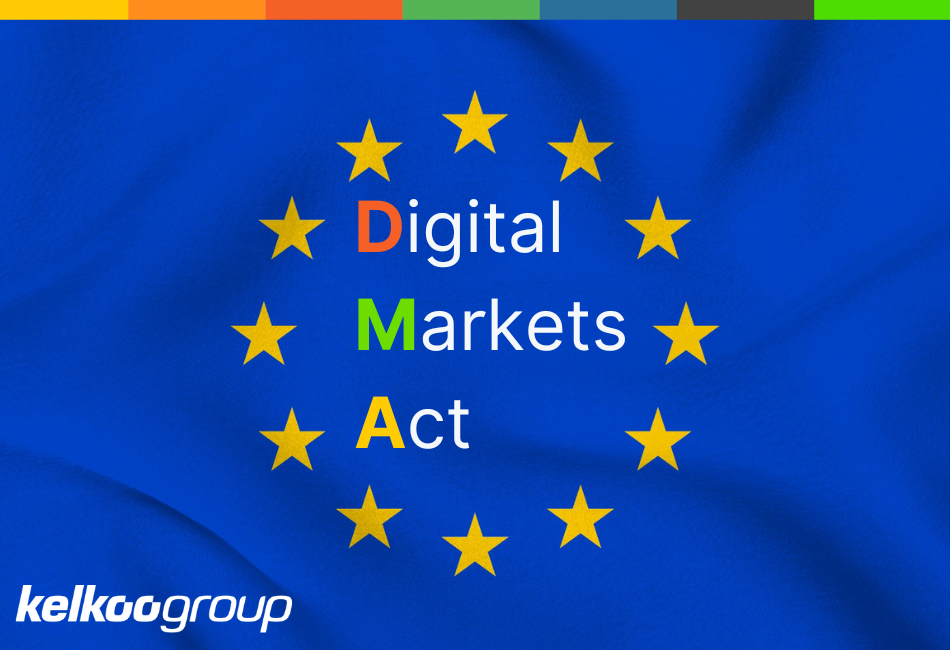
Understanding the Digital Markets Act (DMA) and Google’s Search Page Changes
Google has begun rolling out changes to its search pages in response to the Digital Markets Act (DMA). We’ve done our best to gather the information currently available in the public sphere and present it to you here to help you understand the changes better. Note, that since many of these changes are in Google’s testing phase, they are subject to change.
What is the Digital Markets Act (DMA)?
The Digital Markets Act is a law introduced in the EU to make markets in the digital sector fairer and more contestable. It is law that is applicable to digital organisations operating in the EU, EEA and UK.
What is the focus of the DMA?
The DMA primarily targets what it refers to as ‘gatekeepers’, ie large digital platforms that wield disproportionate control and influence over the digital landscape.
What makes a ‘gatekeeper’?
In a 2020 proposal, the European Commission wrote the following in a proposal for new legislation which goes some way defining a ‘gatekeeper’:
Large platforms have emerged benefitting from characteristics of the sector such as strong network effects, often embedded in their own platform ecosystems, and these platforms represent key structuring elements of today’s digital economy, intermediating the majority of transactions between end users and business users. Many of these undertakings are also comprehensively tracking and profiling end users. 1 A few large platforms increasingly act as gateways or gatekeepers between business users and end users and enjoy an entrenched and durable position, often as a result of the creation of conglomerate ecosystems around their core platform services, which reinforces existing entry barriers.
What gatekeepers have been identified?
Twenty-two services across six companies have been identified as gatekeepers to date:
- Alphabet: Google ads, Google Search, Android, YouTube, Chrome, Google Maps, Google Play and Google Shopping
- Amazon: Amazon Marketplace and Amazon ads
- Apple: iOS, App Store and Safari
- ByteDance: TikTok
- Meta: Facebook, Instagram, WhatsApp, Messenger, Meta Marketplace and Meta ads
- Microsoft: LinkedIn and Windows
When does the DMA come into effect?
The regulation entered into force on 1 November 2022 and became applicable, for the most part, on 2 May 2023. Gatekeepers have until the 6th March 2024 to comply with all of the Act’s provisions. This is why we’re now seeing an increase in activity from Google as we approach the deadline.
What happens if gatekeepers don’t comply?
Those that don’t comply will be subject to fines of up to 10% of the company’s total worldwide turnover and up to 20% in the case of repeated infringements.
What changes can we expect from organic results in Google?
Based on what we’ve seen in the public domain so far, we can expect CSS listings to be included in product modules on search pages. See the example below:
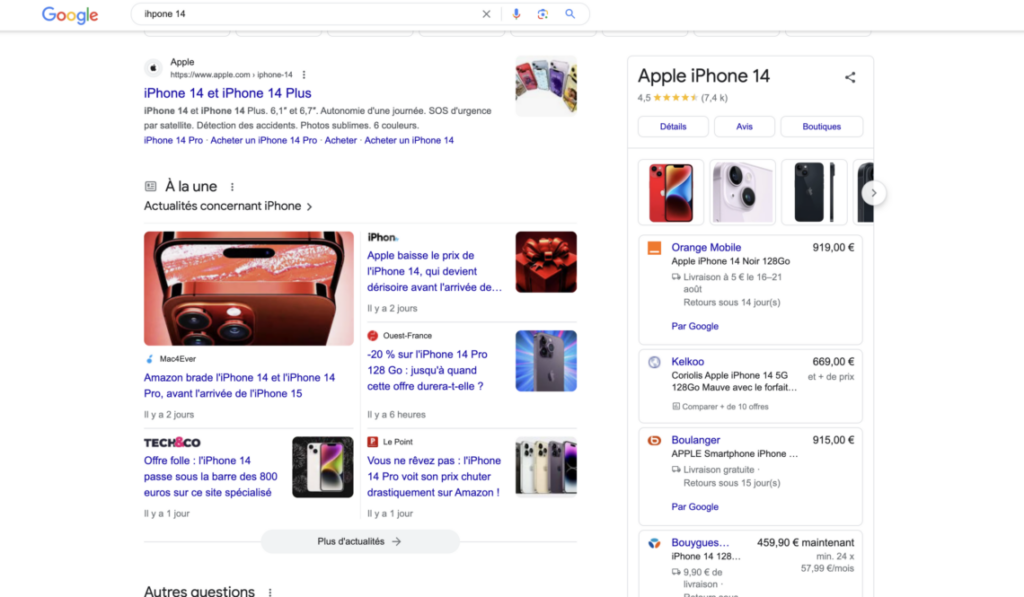
What changes can we expect from PLA on Google?
CSSs like Kelkoo will be given the opportunity to bid on Google PLA. And example of what this might look like is below (screenshot from Google’s public tests in France):
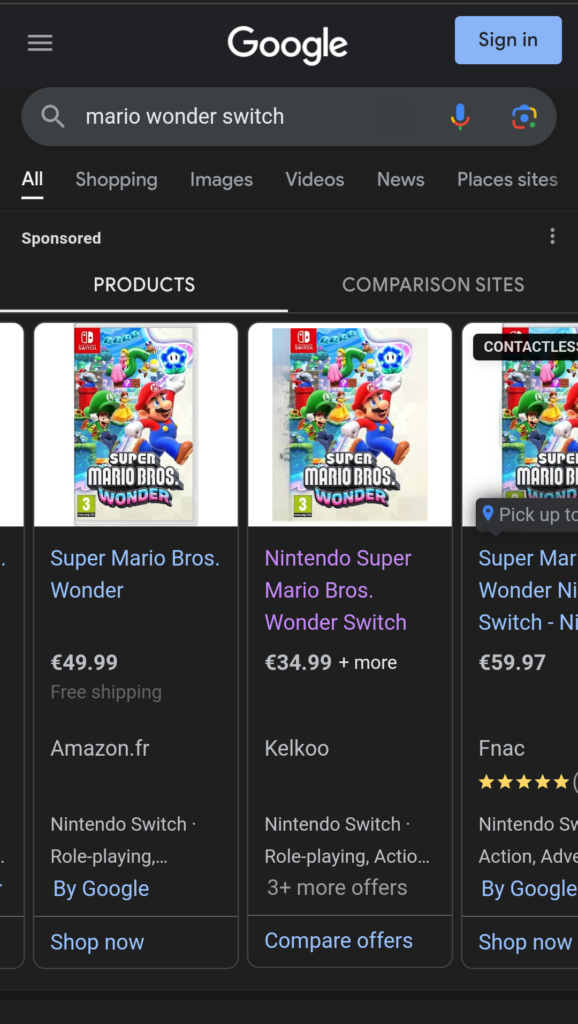
A couple of points to note about how these are displayed:
- Note that CSSs feature multiple price points for the same product and the prices are appended with “+ more”.
- Product listings for CSSs do not feature a “Shop now” call to action, instead they show “Compare offers”.
Where will users land when they click on a Kelkoo PLA listing?
Users will land on a Kelkoo product page. From this page the user will be presented with a number of offers for that product. Here’s an example:
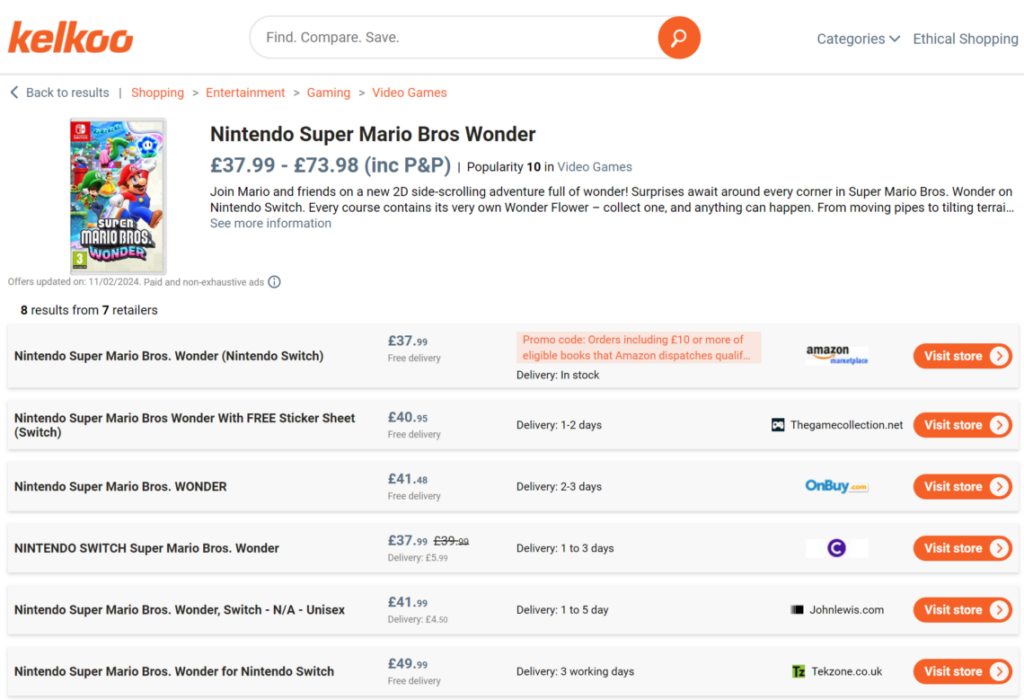
How do I ensure that I’m at the top of listings on Kelkoo product pages?
Currently, position on our product pages are determined by total price (item price + delivery price).
You’re already managing PLA on my behalf, how does this change things?
If we bid on your behalf through our PLA solution we are sending users from Google search pages directly to your site. The changes Google are implementing as a result of the DMA mean that Kelkoo (and other CSSs) will have the opportunity to bid for listings that send users to the Kelkoo site where they can view Kelkoo merchant listings via the Kelkoo product page. These activities are separate and distinct and can operate in parallel.
Do I have to pay for clicks on Kelkoo’s PLA listings?
No! As a merchant, you only pay for the outgoing click from Kelkoo’s product pages. Kelkoo itself bids and pays for clicks from Google to Kelkoo.
What changes can we expect from the way Google present products?
Google will be removing the Shopping tab and replacing it with two new filters: ‘Products’ and ‘Product sites’.
Results filtered by ‘Product’ will feature products from retailers and CSSs:
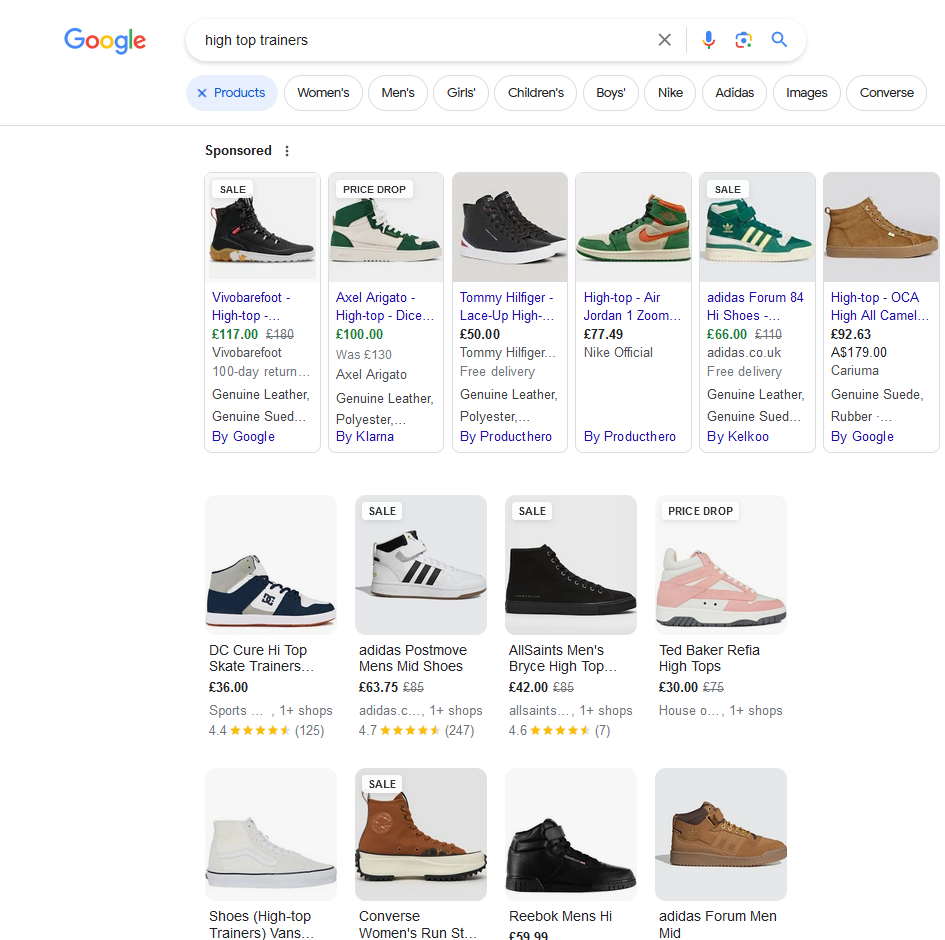
Results filtered by ‘Product sites’ will focus on CSSs:
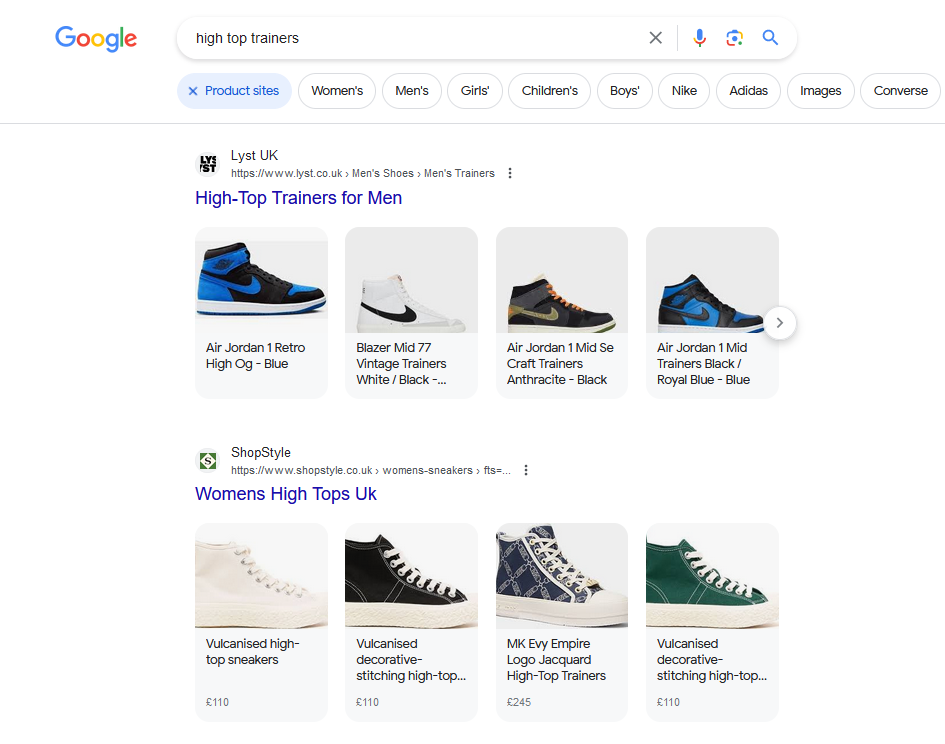
The screenshots do not necessarily represent the final implementation as it appears that testing is still taking place.
What are Rich Results on Google search?
Rich Results are a new product carousel with images, deep links, title, rating and price information. We see a pared down version of the Rich Results carousel in the “Product sites” example above. We expect to see further examples in the coming weeks.
When will these changes be rolled out by Google?
Based on what has been announced by Google so far:
- Organic listings changes, new filters and additional visual changes – CZ, DE, FR, UK in Q1. Full launch in additional EEA markets and CH in Q2.
- PLA listings – EEA, UK and CH. Full launch in Q1
What does this mean for me as a merchant?
Google is currently testing various options which are all being monitored by the European Commission. This is an iterative process and it’s too early to assess which changes will meet the DMA’s requirements and whether there will be any significant impact. As early adopters in this space Kelkoo will keep you updated as soon as we know more about the changes and how they impact CSSs and the market.
What is Kelkoo’s position on the DMA and Google’s search result page changes?
We wholeheartedly believe in giving shoppers more choice in how they find retailers and products.
